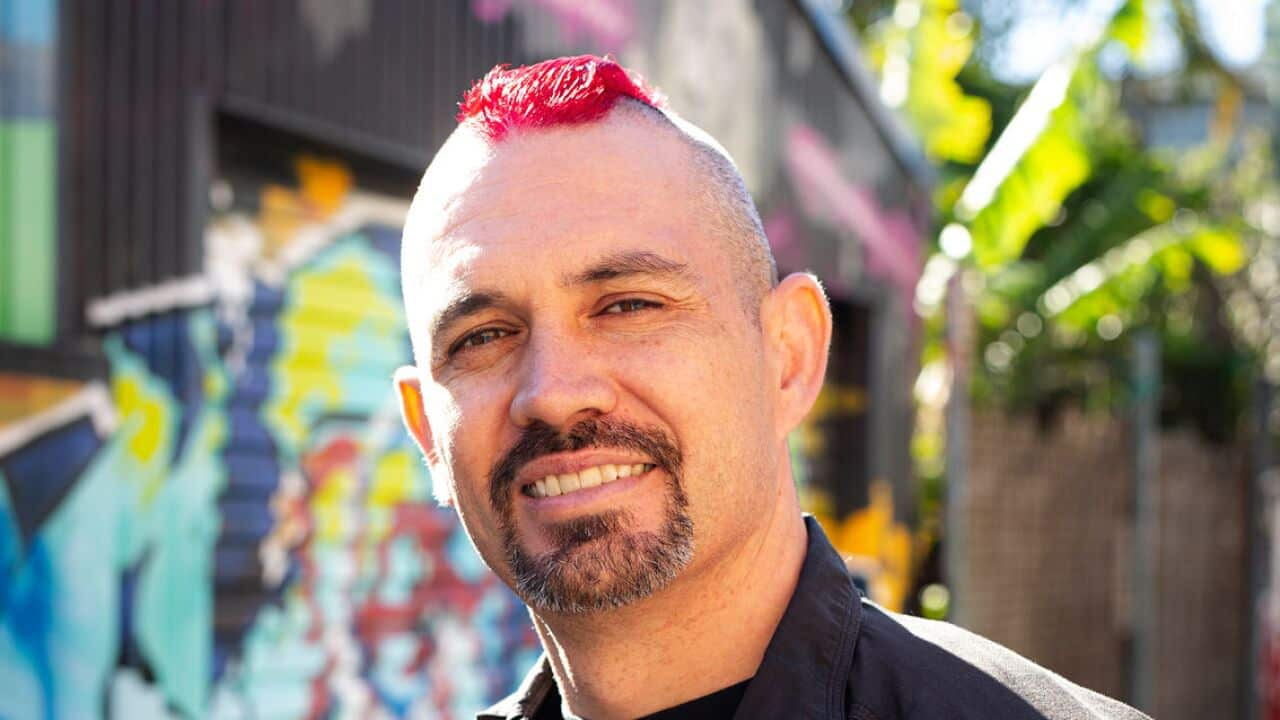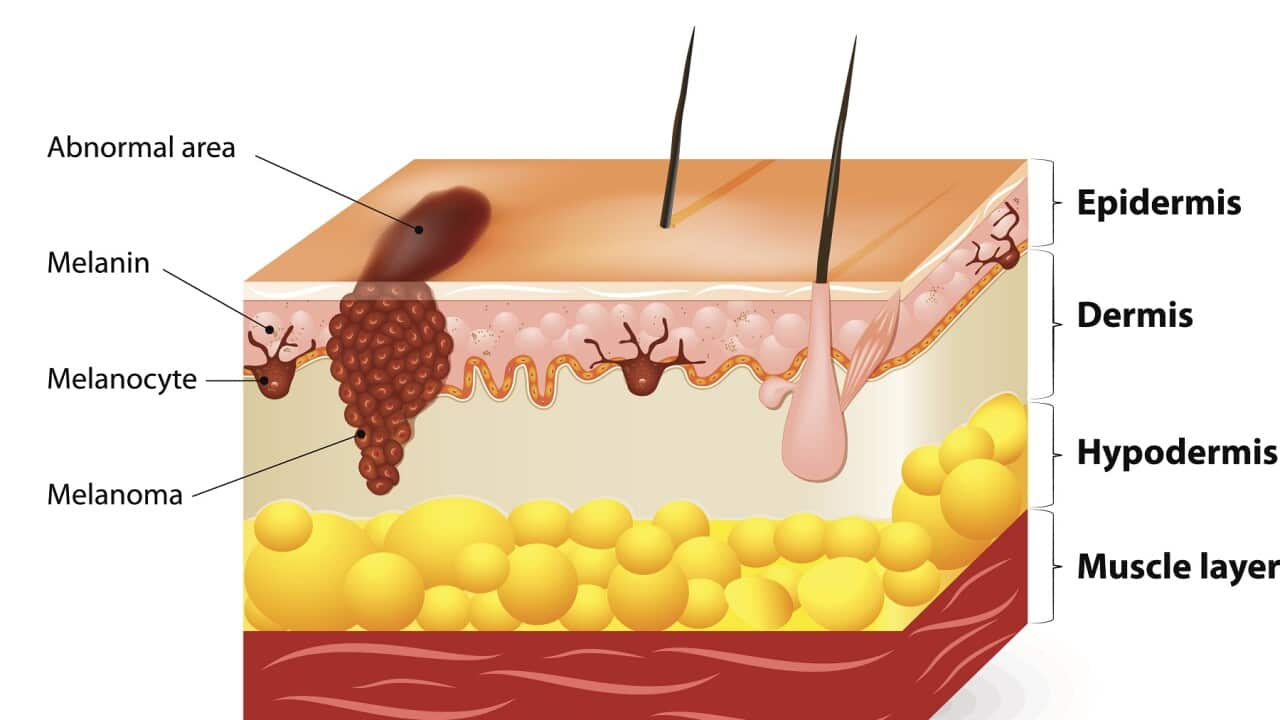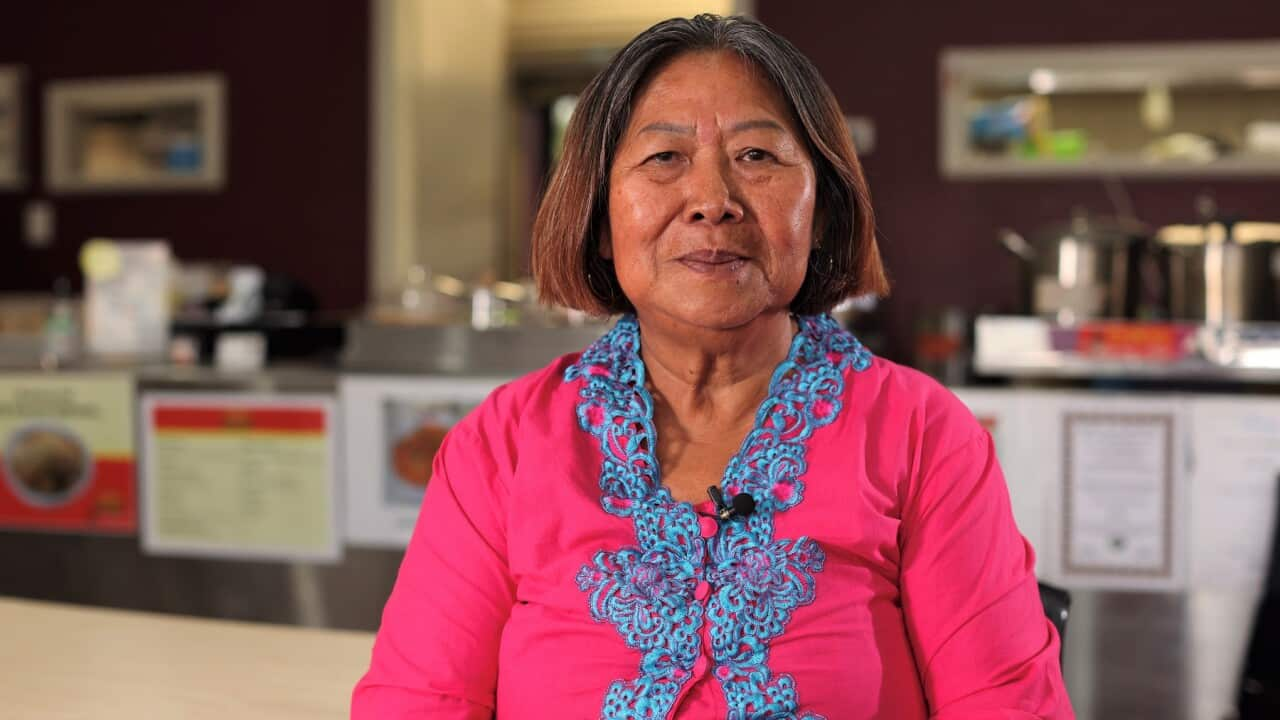TRANSCRIPT
On the third of May, millions of Australians across the country will be flocking to their local polling booths.
Voters will queue outside public schools, town halls and other local buildings, welcomed by the smell of grilled onions on “democracy sausages" as they shuffle in.
These typical elements of election day for so many, are far removed from the reality of voting in prison.
Former prisoners have described the barriers to voting in jail to SBS News.
They say the system does not appear to encourage voting and inmates are given little information on which to base their decision.
New South Wales resident, Damien Linnane, says he tried to vote when he was in custody for 10 months in 2016, but he couldn't.
Linnane tells SBS that in the lead up to election day, he was told about the process to enrol during a daily headcount, and he filled out a form in a correctional officer's office.
“So, I just kind of waited because I'd never tried to vote in prison before.
“I've only been in once.
“And it occurred to me about three days before the election, I'm like, hey, they haven't told me how I'm going to vote.
“And so I went back to the guard's office and I said, do you know what's happening about voting? And the guards are like, well, we have no idea.”
Despite his attempts to follow-up on the issue, he says there was no further support.
In further correspondence with SBS News, Linnane wrote:
“Nothing happened on election day. I was not called up to vote, nor was anyone else [that I saw] …It was as if there was no election.”
“When he enquired about why he wasn't assisted to vote, he says the prison staff told him there was "a logistical issue".
He says he approached the New South Wales Ombudsman when a representative was at the prison for a routine visit, but he never received a response.
The Ombudsman told SBS News it does not comment on individual complaints, while a Corrective Services NSW spokesperson said correctional centres in the state offer postal voting only.
So, how does voting in prison work?
The Commonwealth Electoral Act states that a person serving a sentence of three years, or more is not entitled to vote.
States and territories also have separate rules for voting in state and local elections.
The method by which prisoners vote can also vary between jurisdictions.
This is because prisons are often run by state and territory bodies, which leads to different voting experiences.
For example, New South Wales prisons lodge postal votes, but Victorian prisons are marked as early voting locations.
And although the Australian Electoral Commission oversees voting in federal elections, it must ask the prison’s permission to run a mobile polling booth.
AEC national spokesperson, Evan Ekin-Smyth explained the process.
“We work very closely with the different facilities to make sure that they can have us, and that is the first port of call.
“We can't go somewhere where we're not wanted or granted access, but we work in with the Department of Corrections to get mobile voting teams going into prisons and taking votes from prisons where we can't get a mobile voting team into prisons.
“We then work in with the Department of Corrections to facilitate postal voting.
“There's a number of prisons who are what we call a general postal voter, which means they're signed up to be a postal voter automatically for when an election comes around.”
The AEC reported 274 of the 40,591 people in prison in 2022, voted in that year's Federal Election
The AEC says the number was low due to COVID-19 restrictions, and it doesn't have data for prior elections.
"The AEC was restricted in all mobile polling activities, meaning we weren't delivering hospital voting and only doing minimal prison and aged care voting etc”
The AEC could not provide the number of current inmates who are eligible to vote in the May election.
They said no data on prior federal elections is available either.
"However, systems have been upgraded to ensure this data will be available for all federal elections (and referenda) from 2022 onwards. The upgrades reflect our commitment to improving and providing accurate information."
In Australia, there are moves to expand prison voting eligibility – with the Tasmanian State Government considering a recommendation to give all prisoners the right to vote in state elections.
The Tasmanian Aboriginal Legal Service (TALS) has called for this recommendation to go further.
The Service' Chief executive, Jake Smith, also wants to start conversations on a national level.
"With the federal election just weeks away, it is crucial that we consider who is being excluded from democratic participation?”
Smith also says these laws disproportionately impact First Nations people - who represented 36% of all prisoners in 2024 – despite being only 3.8% of the population.
In 2007, the Human Rights Law Centre assisted in successful legal action by Aunty Vickie Roach, an Aboriginal inmate at the Dame Phyllis Frost Centre in Victoria.
Her team successfully challenged government legislation that applied a blanket ban on sentenced prisoners being able to vote – which the High Court found unconstitutional.
Senior lawyer, David Mejia-Canales, says the Centre is working on expanding the eligibility criteria of inmates to vote.
“The Howard government actually moved to ban people who were imprisoned from voting full stop. And we thought that that was not only just manifestly unfair, that's not how democracy works. People do not stop being citizens just because they are imprisoned.
“We've been working with folks around the country to make sure that all imprisoned people, regardless of where they live, whether they're voting in a state or a federal election or a referendum can vote without restriction.
“That is the case in Canberra and also in South Australia, imprisoned people can vote without restriction.”
However, neither Labor or the Coalition is planning to change voter eligibility rules.
Eligibility is also not the only barrier to voting, prisoners who do vote say there is little accessible information.
Kelly Flanagan is a 38-year-old Wiradjuri woman who voted while incarcerated during the Victorian state election in 2022.
She remembers simply being handed a piece of paper.
“I feel like our opinion doesn't matter, and if you do have an opinion about something or you want to find out more information, especially around the elections and things like that, you get treated like a leper because how dare you ask for information? You know what I mean?
“And I know when I speak to other First Nation women, they're like, what's the point? They don't care about us.”
Internet access is strictly limited and not available to all inmates in Australian centres.
There are also restrictions on which newspapers and television channels are accessible.
Information about who to vote for is a gap the AEC can't fill, as polling booths cannot provide information about political parties or their policies.
Denham Sadleri s a senior reporter for About Time, Australia's first national prison newspaper.
He says he has "heard quite a lot" about the lack of voting information on offer to inmates.
“We've heard from a lot of people that said they weren't really given clear information on how to vote and how that was going to work in prison, whether that's going to be through a mobile polling booth or through postal votes and a lack of information from prison authorities. And I think a few multiple people kind of thought that it was prisons. They're obviously trying to be apolitical, but that kind of extended to the point of not even really talking about the actual process of voting.”
Rosie Heselev, the managing director of About Time, agrees.
“People in prison don't necessarily have access to party lines, they don't have access to the internet like we do, don't have access to community events to ask a politician all these things that are so vital to our democracy.”
A Corrective Services NSW spokesperson said; Corrective Services NSW works with the NSW Electoral Commission and the Australian Electoral Commission to identify eligible inmates and facilitate enrolling to vote and postal voting in each correctional centre.
The Victorian Department of Justice and Community Safety had a similar response:
"Corrections Victoria works with the Australian Electoral Commission to help eligible people in custody participate in federal elections.
“This includes providing them with information on upcoming elections and helping them enrol or update their existing enrolment details."
Despite the challenges during his incarceration, Flanagan is passionate about exercising his right to vote- and encouraging others to do the same.
“I feel more part of society. I feel like my opinion now matters because I'm not a number, I'm a little bit overwhelmed in how much information there is available to me out here because I haven't had access to it for a few years. But I'm excited. I feel like a valid person.
“I feel like I said, I'm very passionate about making change and doing and pushing for that process. And now I have the opportunity to have my voice heard.”













